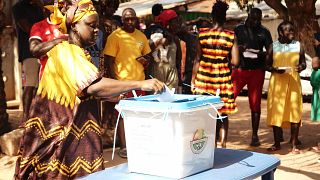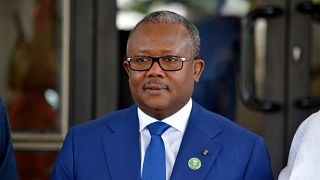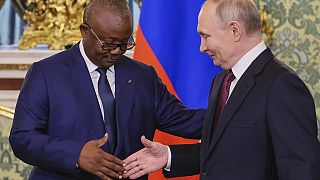Guinea-Bissau
Bissau-Guineans were voting on Sunday to renew their National Assembly, which was dissolved over a year ago, and break the paralysis that has plagued this small West African state prone to political crises.
Polling stations opened at 07:00 (GMT and local time). The 884,000 registered voters will be able to cast their ballots until 5:00 p.m. for this one-round proportional representation election, which will renew the 102 members of parliament and whose results are expected at least 48 hours later.
At 07:00 in an outdoor polling station in Bairro Militar, a district of the capital Bissau, around thirty voters were waiting in single file in the shade of a few trees, under the eye of security forces deployed nearby to monitor the poll.
"There are usually disturbances after the votes have been counted. But this time I dare to hope there won't be any. May the best man win and may peace reign in the country", declared 55-year-old Fode Malam Faty, a candidate for the Social Renewal Party, just after casting his vote.
Guinea-Bissau suffers from chronic political instability, and since its independence from Portugal in 1974 has been the victim of a string of coups d'état or coup attempts, the most recent in February 2022.
Some 200 international observers have been deployed in the country to monitor the vote.
Twenty-two political parties are contesting the ballot, including the three that shared almost all the seats in the outgoing Assembly: Madem G15, President Embalo's political family, the African Party for the Independence of Guinea and Cape Verde (PAIGC) founded by Amilcar Cabral, which has long dominated national politics, and the Social Renewal Party (PRS).
A new Prime Minister will be appointed after the vote.
"The next government must think of us and pay our pensions regularly. Not only are they derisory, but sometimes we wait several months to receive them. I also pray for stability," 75-year-old Bacary Djassi told AFP.
In this country, one of the least developed in the world, successively affected by the consequences of the Covid crisis and the war in Ukraine, economic issues are at the heart of preoccupations.
"Let the future Prime Minister find solutions to the high cost of living," insisted Diarra Fati, 47.
"We're being trained for unemployment. No jobs for thousands of young graduates", said Teodoro Mendes, 23, a student at Amilcar Cabral University, who hopes for an innovative government that listens to young people and creates professional opportunities.











01:13
Forty years and counting: CAR once again postpones local elections
01:08
Dancehall superstar Shatta Wale urges young people to back President Mahama
01:49
Broken windows and lootings: Nairobi businesses deal with protest aftermath
01:09
Guinea presents draft for new constitution, referendum set for September
00:53
Former French president Sarkozy stripped of Legion of Honour medal
02:24
Celebration and protests: Nigeria marks 26 years of uninterrupted democracy